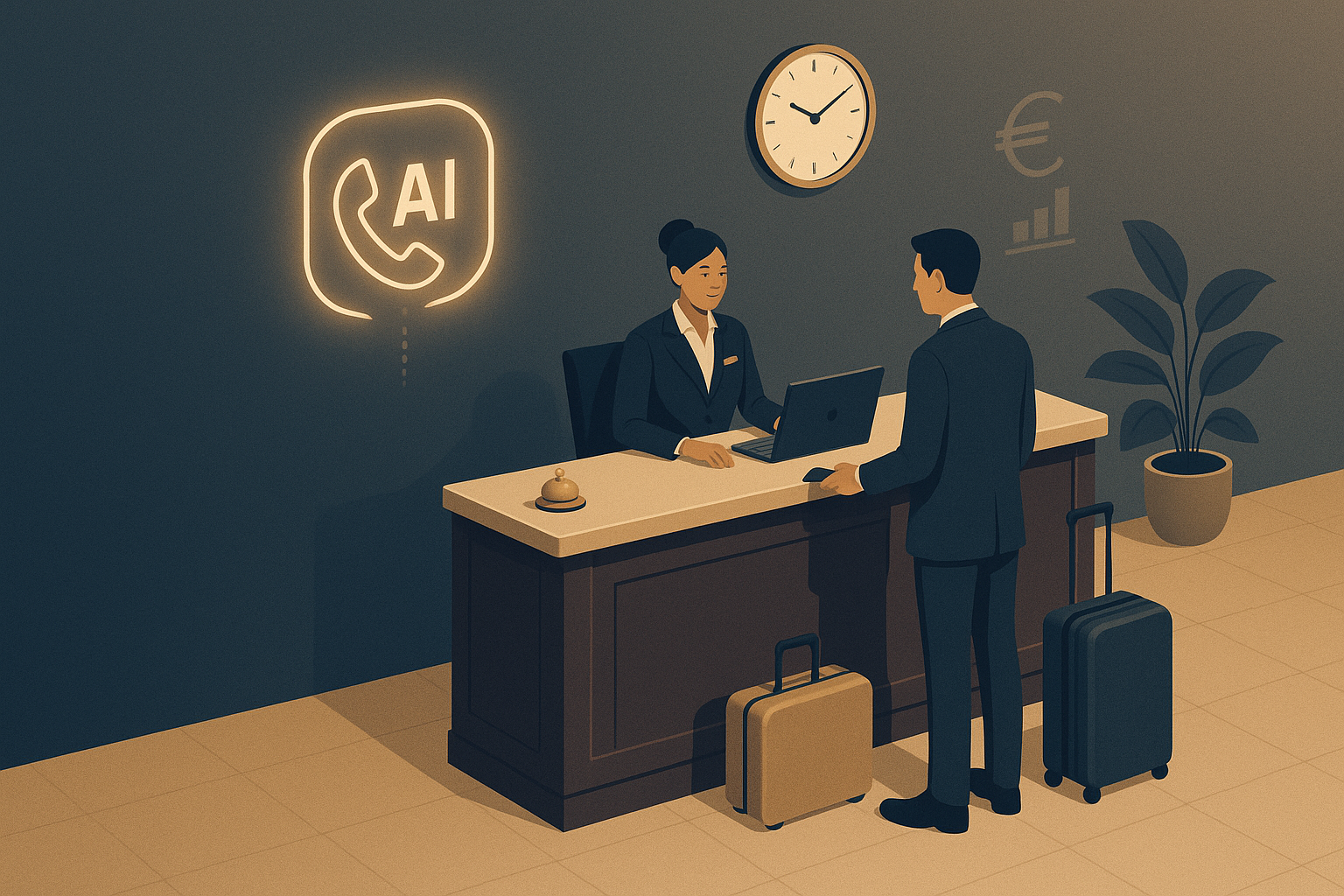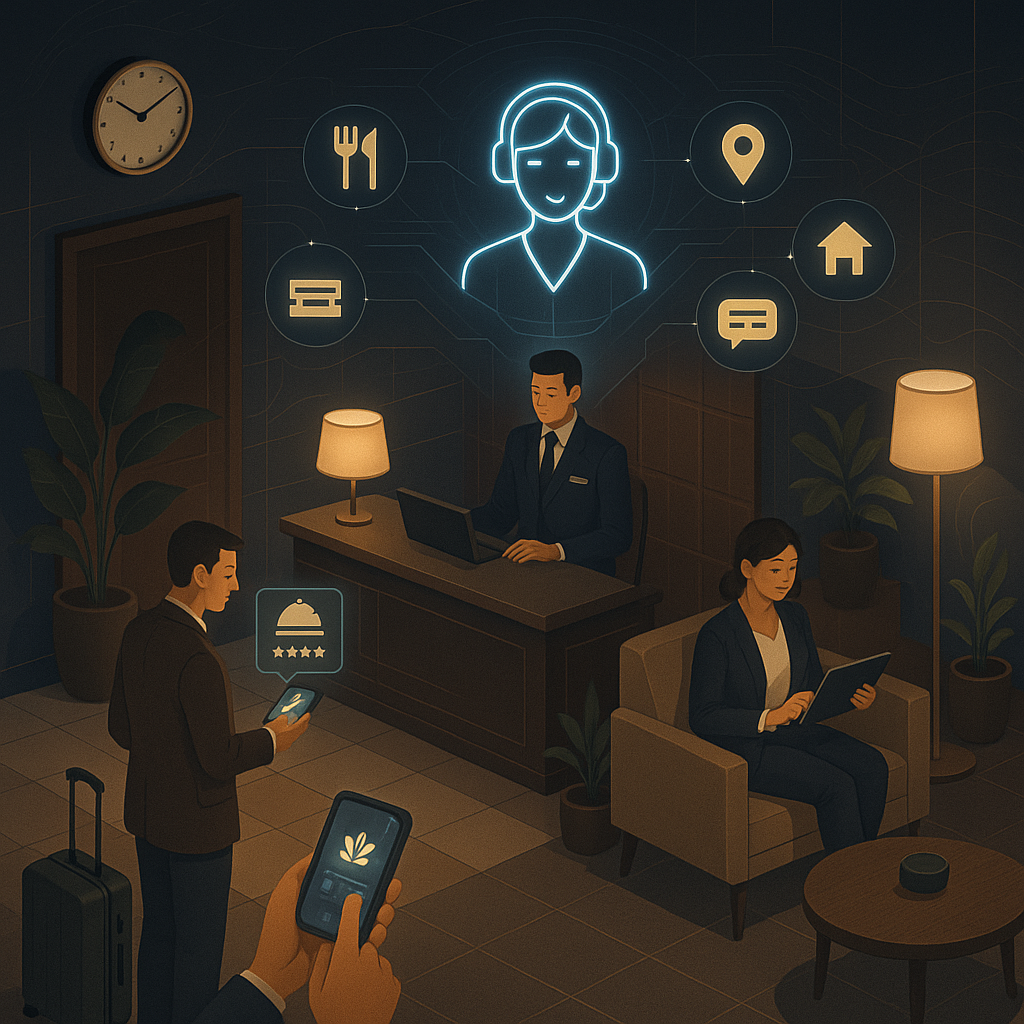
How Telephone Assistants Solve Seasonal Staffing for Hotels
Struggling with phone call volumes? Learn how intelligent assistants help hotels handle peak demand, improve guest satisfaction, & reduce costs.
Read MoreFor hotel owners and managers across Europe, the 3 AM phone call is all too familiar. It’s not just a matter of late-night disruptions for your staff; it’s about the revenue slipping through your fingers every time those calls go unanswered.
Picture this scenario. It’s 3:15 AM, and a potential guest calls your property to inquire about tomorrow night’s availability. Your night auditor, busy resolving a guest’s plumbing emergency, doesn’t answer in time. The caller hangs up and books with a competitor who has round-the-clock availability. That one missed call represents more than frustration; it’s a missed opportunity, a blown chance at direct revenue, and potentially a dent in your reputation.
This is the “3 AM Problem,” a persistent issue made worse by growing guest expectations and staffing limitations in the European hotel industry. But what if there was a way to address this challenge head-on?
Did you know that 23% of hotel bookings occur outside of typical business hours? For an average European hotel with 100 rooms, this equates to 15–25 potentially missed bookings per month. Assuming an average nightly rate of €150, these missed opportunities could cost properties €3,000 each month—or more than €36,000 annually in lost revenue. That’s money that independent hotels, already squeezed by online travel agency (OTA) fees, can’t afford to lose.
Missed calls don’t solely impact direct bookings. Guest expectations are evolving quickly, and by 2025, 24/7 responsiveness will be the norm, driven by instant-availability models championed by OTAs and chain hotels with call centers.
There’s also the ripple effect of poor service experiences. Negative reviews citing unavailability can tarnish your reputation, discourage future direct bookings, and push potential guests toward competitors who ensure immediate support.
Certain times hit harder than others:
Maintaining 24/7 staffing for guest inquiries is no easy task. Night auditors are already juggling multiple roles, from emergency response to administrative duties. Add in:
Unfortunately, quick fixes don’t address these systemic challenges.
This leaves many hoteliers stuck with impossible choices, caught between losing income to missed calls, overextending budgets to maintain round-the-clock staffing, or compromising guest satisfaction with inadequate solutions.
Today’s guests expect seamless, immediate, and personalized answers to their inquiries. Typical expectations include:
Failure to meet these expectations doesn’t just lose an immediate sale. It initiates a frustration cycle:
With 40% of European hotel guests being international travelers, language differences can cause miscommunication, booking mishaps, and dissatisfaction. The inability to offer multilingual support is not just a service issue; it’s a revenue gap.
The solution? Smart automation powered by AI virtual assistants designed for the hospitality sector. These systems deliver 24/7 guest service without requiring additional human staffing. Key features include:
These assistants do more than answer questions; they enhance the guest experience while reducing labor demands.
Effective AI solutions go beyond language support by understanding tone, context, and even accents. Features include:
The right AI can integrate completely with your existing systems:
Hiring multilingual staff for 24/7 availability costs upward of €60,000 annually per person. By comparison, implementing AI automation ranges from €15,000–30,000 annually.
With even 15–20 additional monthly bookings (recovering just a fraction of missed calls), hotels can achieve a 4–6 month payback period on their investment.
Timing your implementation effectively can minimize disruption. Start during shoulder seasons, rolling out during non-peak periods. A gradual rollout allows your staff to adapt to new workflows before expanding the automation to busy seasons.
The process includes:
Metrics to monitor include:
By tracking these metrics, you can continuously refine the system while demonstrating the ROI of automation.
Hotels that adopt smart automation are future-proofing their business. By providing 24/7 multilingual support, capturing missed opportunities, and enhancing guest experience, you’ll position your property as both efficient and guest-centric.
Stop losing revenue to after-hours calls. VELENTIS specializes in hospitality automation tailored to European hotels. With seamless integration, multilingual support, and measurable ROI, our solutions offer immediate benefits.
Your guests demand more. With VELENTIS, you can deliver.
Automation experts at VELENTIS

Struggling with phone call volumes? Learn how intelligent assistants help hotels handle peak demand, improve guest satisfaction, & reduce costs.
Read More
Learn how AI helps European hotels deliver 24/7 personalized service via WhatsApp & phone, boosting satisfaction and revenue without high concierge costs.
Read More